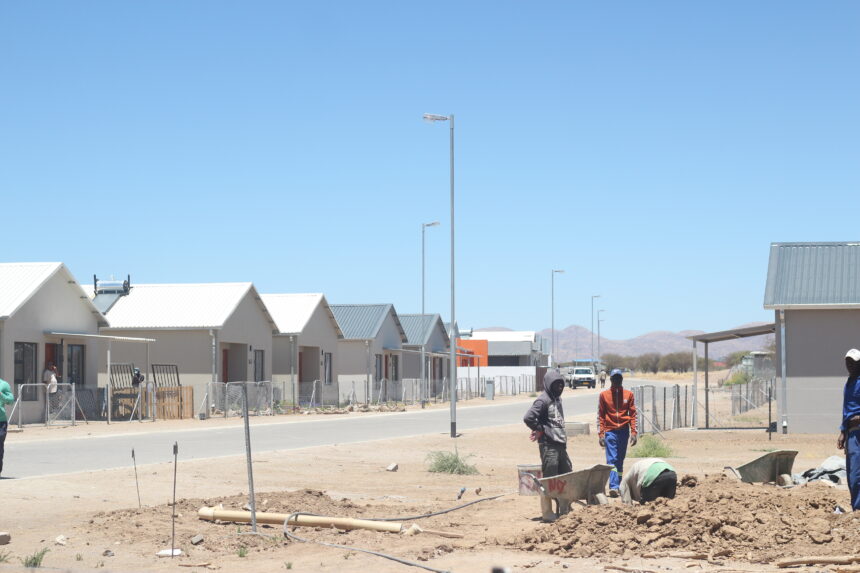National Housing Enterprise CEO Gisbertus Mukulu said the enterprise is grappling with many challenges when it comes to providing housing in Namibia.
Scarcity of land, high land prices, rising building material costs and restricted funding were among the issues, he stated.
Mukulu made these remarks yesterday while providing an update at the Government Information Centre.
“I am appealing to local authorities to please provide us with land at a lower rate because this is also cascading the housing costs to end-users,” pleaded the CEO.
He further noted that the country’s backlog is hovering around 300 000. Since its inception in 1993, NHE has provided 21 545 houses countrywide.
NHE is publicly-funded, and its core business is providing housing to Namibia’s low and middle-income earners, as well as financing housing for such inhabitants.
As Namibia’s urban population is expected to increase from 52% to 60% by 2030, the country’s demand for formal housing is increasing, meaning Namibia needs to double its efforts to address the issue.
Namibia needs more than 30 000 housing units annually to fight the backlog the country is experiencing.
Last week at State House, urban and rural development minister Erastus Uutoni said the government is pursuing an option of transferring the process of land servicing from local authorities to central government with a belief of lowering land costs.
Some of the short-term recommendations made by the World Bank to Namibia to tackle the backlog is to support the finalisation and implementation of the housing strategy, drawing upon global experience to promote sustainable urban development.
“Leverage lessons from the student village and Windhoek housing projects to refine the housing public-private partnership framework, while also implementing digitalisation measures to improve cost and efficiency of the entire land delivery process, including land design, titling, approval and registration,” recommended the bank.
In the medium- to long-term recommendations, the report stated Namibia should create regulatory frameworks for the issuance of green housing finance.
The country should also introduce innovative market-appropriate financial products for the low- and middle-income housing market.
-mndjavera@nepc.com.na



